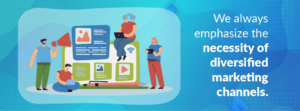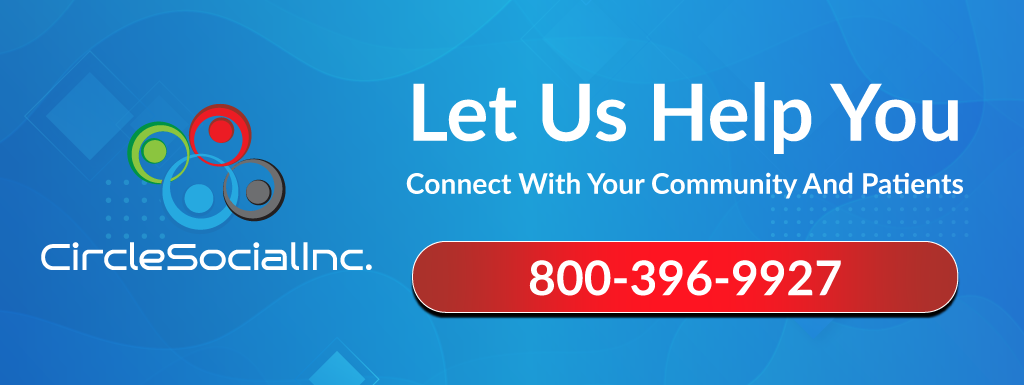Big Pharma has one of the biggest and most effective marketing engines in the world. Just looking at the top 35 largest pharmaceutical companies, they earned $11.5 trillion between 2000 and 2018. That’s $640 billion a year, a large chunk of which comes from the sales of psychopharmaceuticals. By comparison, the entire behavioral health therapy market was one-third of that at just $183 billion in 2018.
With an estimated 20% of Americans struggling with some kind of behavioral issue, why is big pharma able to earn so much revenue, while actual service providers make multiples less from a strict revenue standpoint? There are, of course, a number of reasons for this, but one clear one is that big pharma has mastered direct-to-consumer (DTC) advertising, while psych behavioral is still stuck in the dark ages of boots-on-the-ground, referral-based marketing. Psych behavioral websites are outdated by a decade or more and not attractive to the modern consumer, they can’t be found easily on Google for even basic local searches (bad SEO), and they have no social media or paid social presence to speak of.
Prior to 1997 and the relaxation of direct-to-consumer (DTC) marketing for prescription drugs, very little of big pharma’s budget was spent on advertising to consumers. In 1997, just 12% of big pharma’s marketing budget was spent on DTC. By 2016, that number had more than doubled to 30%?

Why?
Because, for every dollar big pharma spends on marketing, they see a $2.20 to $4.20 increase in sales, that’s a 2 to 4X return on ad spend! Most organizations would jump at the chance to increase revenue by 200-400%, so why is psych behavioral still stuck in the dark ages of marketing?
They’re making the mistake many industries make, and relying on:
- What they’ve always done, and
- The marketing channels that are easiest to track and seem to provide results quickly.
This logic makes sense. Standard hospitals often account for 50%+ of all admissions into psych behavioral facilities. So of course you’d want to focus efforts there. And the really great thing is that it’s super easy to track. Your business development rep goes in, 2 weeks later you get 2 referrals from that hospital, and everybody’s happy.
DTC advertising doesn’t work that way. When you go to your physician or to a hospital, the doctors and nurses don’t ask, “And can I ask, how did you hear about Prozac?” Big pharma gets no granular data back on what advertising campaigns or what channels are working most effectively. But they were smart enough to realize that an inability to track final attribution doesn’t matter, because that’s not how really effective marketing works.
Can you imagine if McDonald’s, Starbucks, Coca-Cola, or Wal-mart tried to track individual ads back to which customer entered their stores? The idea sounds silly. These behemoths know that marketing is about building trust and top-of-mind awareness in customers BEFORE they have a need. Then, just like big pharma does with its marketing, results are tracked as overall increases in sales, rather than worrying about overly granular tracking.
More importantly, they know the investment is worth it. Psych behavioral, like many smaller healthcare sectors, tries to track direct attribution. They want to see the marketing spend go out on the channel, then come back as an admission, like happens with the business development reps at the hospitals. But this isn’t how DTC advertising works. You will never be able to effectively track new patients from DTC campaigns on TV, radio, social media, or through PR efforts, at least on a per channel level. There are many things you can track to help measure impact and ROI on the overall journey, but trying to tie to directly to an admission isn’t one of them.
That’s because there are multiple touch points along these patient journeys, touch points that occur over time and across channels. No one sees an ad for a McDonald’s burger or for Tide laundry detergent, drops what they’re doing, and then immediately goes to McDonald’s or Wal-mart to buy the product. That’s not how effective marketing works. Big brands and big pharma know this. They invest for the long-term, and drive massive growth and profits because of it.
All of this is why good marketing is synergistic. The TV campaigns add to the Facebook campaigns, which add to the direct to physician marketing. As we’ve seen internally in our own data sets, each channel doesn’t simply add on in some linear fashion. We see synergistic effects of 10-30% increases in overall revenue when integrated, multi-channel strategies are implemented versus when single channels are run alone.
How do we know that? Because we’ve had behavioral health clients we’ve tested it with. We’ve run just Adwords, then just run Facebook to see which provides the better ROI. But when we re-allocated the same budgets to split across both platforms, results are always 10-30% better than what we’d gotten with either channel as a stand alone.
The Problems with Overreliance on Too Few Referral Sources
As has been jarringly brought home to many providers during the coronavirus lockdowns, overreliance on too few referral sources is a very high risk strategy that can leave you in the lurch if something happens to them.
 Of course, the thought that hospitals could stop being a major referral source to psych behavioral never crossed most people’s minds for good reason, but, in our work building out long-term growth strategies with clients, we always emphasize the necessity of diversified marketing channels.
Of course, the thought that hospitals could stop being a major referral source to psych behavioral never crossed most people’s minds for good reason, but, in our work building out long-term growth strategies with clients, we always emphasize the necessity of diversified marketing channels.
As I mentioned above, this provides a synergistic effect where the same marketing dollar earns you 10-30% more, but it also protects you against disruption. Rather than having the potential to, overnight, lose 50% of your referral base, you may only lose 20%, which is far more manageable.
The other issue is that you’re always waiting for that time of need. Nobody knows you or is seeking you out, there does not exist a reputation in the community. You have a reputation that exists in the minds of those who refer to you – the hospital case workers, discharge coordinators, and nurses. But if you ask the average person on the street who lives in a 20-mile radius of your facility, what percentage do you think know who you are if they haven’t had family there at some point? The answer is probably less than 10%. Ask that same group of people how many know McDonald’s or Starbucks, even if there isn’t one in the neighborhood, and you’ll get a very different answer.
The Opportunity Is Tremendous
The opportunity is right there for the taking. Not only do you have the advantages of increased revenue and added business protection through diversification, there’s almost no competition! Most healthcare organizations are almost solely reliant on referral partners, just like you have been. When you go into a hospital, every psych facility in the city has reps going to that same hospital. But how many of them are running DTC campaigns across multiple channels? Probably none.
 It’s a blue ocean opportunity to grab market share and build loyalty and trust in the communities you operate in without competition! Of course, that’ll eventually change as providers get with the times and cotton on to the value, but the first mover advantage will be yours.
It’s a blue ocean opportunity to grab market share and build loyalty and trust in the communities you operate in without competition! Of course, that’ll eventually change as providers get with the times and cotton on to the value, but the first mover advantage will be yours.
I’d also make a final note here that we work with a lot of addiction treatment providers across the country, all of whom have not only NOT seen a drop in census, but they’ve actually seen a 10-15% increase during this pandemic and lockdown! Why? One reason is because they’ve been doing DTC marketing for over a decade. Patients know who they are and what they offer, so they have not seen the huge hits as many aren’t overly reliant on a handful of large hospital referral partners.
Interested in how we here at Circle Social can help you tap into more effective strategies? Get in touch at engage@circlesocialinc.com or call 800 396 9927.


